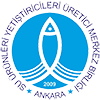The Aquaculture Producers’ Central Union is a producer organization established in 2009 with the approval of the Ministry of Agriculture and Rural Affairs of the Republic of Turkey, in accordance with the provisions of Law No. 5200 on Agricultural Producer Unions. Twenty-one of our unions are members. Over 1,000 businesses are members of our unions.
What are producer unions, what do they do, how do they work?
Along with the developing world, a series of initiatives have been launched in our country to register and support farmers. Our country needs producers who can produce, sell their products at their fair value, and receive support. Due to this need, Law No. 5200 on Producer Associations was enacted in 2004. The purpose of creating organized producers is both to unite producer forces and to recognize a representative union as a representative. Individual producers, unable to voice their demands anywhere, can easily convey their demands to the relevant institution and find solutions through an organized framework.
As aquaculture farmers, we all share the same problems and solutions. There are approximately 2,127 fish farms in our country. If each farmer attempts to solve their problems on their own, they will not only be ignored but also waste significant time and money. Therefore, it is crucial to unite and gather under the umbrella of an organization. It is undoubtedly much more effective for problem-solving to be addressed through the organization rather than by individuals when applying to official authorities.
The Ministry of Agriculture and Forestry of the Republic of Turkey also encourages the strengthening of producer organizations. An organization with a strong institutional structure and the support of all producers has a voice because it has the authority to represent them in all areas and under all circumstances. It is the decision-maker in future plans. An organization with a strong institutional structure is informed about all matters of benefit to producers and communicates this information to them, fostering collective wisdom and awareness.
As is well known, numerous fisheries-related projects are being announced on the path to the EU. Organized participation is essential to benefit from these projects. To benefit from these projects in solving technical or organizational problems, producers must be aware of their problems, take ownership, and join forces with other producers. Currently, 21 aquaculture producers’ associations have been established with this understanding. Establishment efforts are ongoing in many provinces.
In this regard, everyone involved in aquaculture production must act with common sense, convey their voice to the necessary authorities through a seriously taken institution, and accept the principle of strength through unity.
Our Central Union was established on January 26, 2009, based on Law No. 5200 on Agricultural Producer Unions, adopted in 2004. We have 21 unions and over 1,000 member enterprises. This figure accounts for more than half of the aquaculture enterprises in our country. However, from a production perspective, Central Union members account for 80% of Türkiye’s aquaculture production.
Our aim is to ensure cooperation between member associations, to contribute to the development of the sector, to assist our members in complying with the rules regarding the national production planning and marketing of aquatic products, and to inform and guide our members.
Our duties;
- To protect the rights and interests of our members,
- To represent our member unions domestically and internationally,
- To send representatives to councils and similar organizations established to develop agricultural policies,
- To contribute to EU harmonization efforts,
- To prepare projects and take initiatives to obtain technical and financial support from domestic and international sources,
- To organize meetings and workshops to foster unity and solidarity among members,
- To produce publications such as books, brochures, and magazines.
In line with our objectives and duties, our key activities include participating in the meetings of relevant Ministries, conveying the sector’s views on legislation and practices to institutions, informing our members about all developments through our website and other means, ensuring communication with public and private sector stakeholders and other producer organizations, publishing printed publications, and organizing regional and national meetings.
